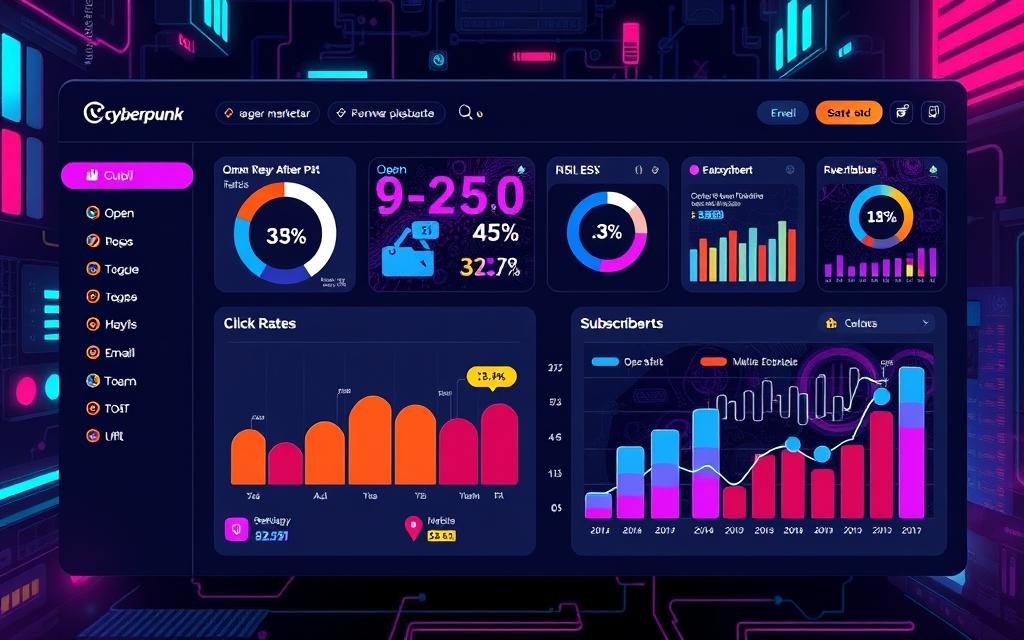In today’s competitive market, growing your brand requires a strategic approach to reaching new customers and expanding your online presence. Digital advertising has become a crucial component for businesses of all sizes, enabling them to target specific audiences with precision.
The landscape of advertising is constantly evolving, with new technologies and platforms emerging to shape marketing strategies. To maximize return on investment, businesses must choose the right ads platforms. This comprehensive guide will walk you through the most effective digital advertising platforms for 2025, covering search, social, video, and display advertising.
By understanding the strengths of various platforms, businesses can create targeted campaigns that drive real results. Whether you’re looking to boost your brand awareness or drive conversions, this guide will provide you with the insights needed to succeed in the ever-changing world of online marketing.
Key Takeaways
- Understand the importance of digital advertising for brand growth
- Learn how to choose the right advertising platforms for your business
- Discover the most effective digital advertising platforms for 2025
- Get insights into creating targeted campaigns that drive real results
- Maximize your return on investment with the right advertising strategies
The Evolution of Digital Advertising in 2025
The digital advertising ecosystem is undergoing a significant metamorphosis in 2025, driven by technological advancements and changing consumer behaviors. This transformation is reshaping how businesses approach digital advertising to reach their target audiences.

Current State of Online Advertising
In 2025, online advertising continues to grow in importance, with businesses allocating larger portions of their marketing budgets to digital channels. The current landscape is characterized by the dominance of major platforms and the emergence of new technologies that enable more precise audience targeting. As a result, advertisers can now achieve higher levels of brand awareness and engagement.
Why Digital Platforms Matter for Brand Growth
Digital platforms are crucial for brand growth as they offer unparalleled opportunities for businesses to connect with consumers. By leveraging these platforms, companies can implement sophisticated advertising strategies that drive measurable results. Effective use of digital advertising enables brands to stay competitive in a rapidly evolving market.
Understanding Digital Advertising and Its Impact
In the rapidly evolving landscape of marketing, understanding digital advertising is crucial for brands aiming to thrive in 2025. As advertising continues to shift towards digital platforms, it’s essential to grasp the differences between digital and traditional methods.
What Makes Digital Advertising Different from Traditional Methods
One of the primary distinctions lies in the flexibility and targeting capabilities of digital advertising. Unlike traditional advertising methods, which often involve lengthy processes and broad, untargeted audiences, digital ads can be created, launched, and adjusted quickly. For instance,  digital campaigns can go live almost immediately after creation, allowing for rapid response to market trends and consumer behaviors.
digital campaigns can go live almost immediately after creation, allowing for rapid response to market trends and consumer behaviors.
Moreover, digital advertising offers more precise audience targeting compared to traditional methods. With advanced data analytics and tracking capabilities, businesses can tailor their ads to specific demographics, interests, and behaviors, increasing the likelihood of reaching potential consumers.
Key Benefits for Brand Development
The benefits of digital advertising for brand development are multifaceted. Not only does it provide increased visibility and engagement, but it also allows for real-time tracking of results. This enables businesses to adjust their campaigns on the fly, optimizing their strategies for better performance.
As noted by a marketing expert, “
Digital advertising is not just about reaching a wider audience; it’s about connecting with the right people at the right time.
” This level of precision and flexibility is a significant advantage overtraditionalmethods, making digital advertising an indispensable tool forbrandgrowth in today’s competitive market.
Search Engine Marketing Platforms
Search engine marketing continues to be a vital tool for advertisers in 2025, offering targeted reach and measurable ROI. With 89% of buying journeys beginning with a search engine, the importance of being visible on these platforms cannot be overstated.

Google Ads
Google Ads remains the dominant search engine marketing platform in 2025, offering a vast array of ad formats including text ads, shopping ads, and local service ads. Its ability to target users with high purchase intent through keyword bidding makes it an indispensable tool for advertisers.
The platform’s emphasis on keyword research and quality scores ensures that ads are relevant and effective. With Google Ads, advertisers can achieve a significant return on investment, as the platform allows for precise targeting and measurable results.
Microsoft Advertising (Bing)
Microsoft Advertising, formerly known as Bing Ads, offers an alternative to Google Ads with potentially lower competition and costs. While it may not have the same reach as Google, it still provides a valuable channel for advertisers looking to diversify their search engine marketing campaigns.
Emerging Search Platforms for 2025
As the digital landscape evolves, emerging search platforms are gaining traction. These platforms offer new opportunities for advertisers to reach their target audience in innovative ways. Advertisers should keep an eye on these emerging platforms to stay ahead of the competition.
Social Media Advertising Powerhouses
Social media advertising has become a cornerstone of digital marketing strategies, offering unparalleled reach and engagement. As brands look to leverage these platforms, understanding the unique strengths of each is crucial.
Meta Platforms (Facebook & Instagram)
Meta Platforms, encompassing both Facebook and Instagram, stand out as leading social media advertising channels. Their combined user base offers advertisers a vast and diverse audience. With advanced targeting capabilities based on interests, demographics, and behaviors, brands can precisely reach their desired audience. The platforms support a variety of ad formats, including Stories, Reels, and sponsored posts, allowing for creative flexibility.
TikTok Advertising
TikTok has seen explosive growth, making it a prime platform for brands targeting younger demographics. Its unique short-form video format offers a fresh way to engage users. TikTok’s advertising capabilities, including in-feed ads and branded effects, provide brands with innovative ways to reach their audience.
LinkedIn for B2B Marketing
LinkedIn’s professional user base makes it an ideal platform for B2B marketing. Advertisers can target users based on job title, industry, and more, ensuring their message reaches the right professionals. LinkedIn’s sponsored content and sponsored InMail options allow for effective engagement with a professional audience.
Twitter/X Advertising
Twitter/X’s real-time nature makes it perfect for trend-based marketing and real-time engagement. Brands can use promoted tweets, accounts, and trends to increase their visibility. The platform’s ability to target users based on interests and keywords allows for precise ad placement.
Each of these social media platforms offers unique advertising opportunities, from targeting options to creative ad formats. Understanding these differences is key to creating effective social media advertising campaigns. By choosing the right platforms and ad formats, brands can enhance their reach, engagement, and ultimately, their conversion rates.
Video Advertising Channels
With the rise of visual content consumption, video advertising has become an indispensable channel for brands to connect with their audience. It offers a more engaging and interactive experience, driving brand awareness and conversion.
YouTube Advertising
YouTube stands out as the dominant video advertising platform, boasting diverse ad formats such as in-stream, discovery, and bumper ads. With YouTube being the second-largest search engine, brands can tap into a vast audience, leveraging the platform’s extensive reach and engagement.
Streaming Service Ads
The growing importance of streaming service advertising on platforms like Hulu, Netflix, and Disney+ cannot be overlooked. These platforms offer targeted advertising opportunities, reaching users who are increasingly consuming content through streaming services.
Emerging Video Platforms
Emerging video platforms are gaining traction with advertisers in 2025, offering new avenues for brand visibility and engagement. These platforms provide innovative ad formats and targeting options, catering to the evolving needs of advertisers.
Video advertising’s effectiveness is further underscored by its ability to inspire need, simplify complex offerings, and build positive brand sentiment. By leveraging the right video advertising channels, brands can achieve their marketing objectives, driving both brand awareness and conversion.
Display Advertising Networks
Display advertising networks are pivotal for businesses aiming to expand their online presence. These networks enable brands to reach a vast audience across millions of websites, significantly contributing to brand awareness.
Google Display Network
The Google Display Network is one of the largest and most effective display advertising networks. It allows advertisers to reach over 90% of internet users worldwide, across more than 2 million websites and numerous YouTube videos. With advanced targeting options, including contextual targeting, placement targeting, and remarketing, advertisers can precisely reach their desired audience.
Programmatic Display Platforms
Programmatic display platforms automate the buying and placement of display ads, making the process more efficient and less prone to human error. These platforms use real-time bidding (RTB) to purchase ad space, allowing for highly targeted advertising based on user data and behavior.
Native Advertising Networks
Native advertising networks focus on creating ads that match the form and function of the platform they appear on. By integrating ads naturally into content, these networks achieve higher engagement rates compared to traditional display ads.
Display ads not only build brand awareness but also complement search ads, driving conversions. By leveraging these networks effectively, businesses can significantly enhance their online visibility and reach.
Email Marketing Platforms for Brand Growth
As we navigate the evolving landscape of digital advertising, email marketing platforms remain essential for brands seeking to foster meaningful connections with their audience. With an average ROI of $40 for every $1 spent, email marketing continues to be a vital component of a comprehensive digital marketing strategy.

Mailchimp and Alternatives
Mailchimp has long been a leading email marketing platform, known for its user-friendly interface and robust features. However, emerging alternatives are gaining traction by offering more specialized services and competitive pricing. Brands should consider these alternatives to find the best fit for their specific needs.
When evaluating email marketing platforms, consider factors such as ease of use, automation capabilities, and integration with existing marketing tools.
Automated Email Marketing Solutions
Automated email marketing solutions have revolutionized the way brands interact with their customers. By leveraging AI and machine learning, these platforms can personalize content, optimize send times, and create sophisticated customer journeys.
The integration of AI in email marketing enables brands to deliver highly targeted campaigns, enhancing engagement and conversion rates.
Emerging Digital Advertising Technologies for 2025
Emerging technologies are set to redefine the digital advertising ecosystem in 2025. As technology continues to evolve, new opportunities and innovations are emerging in the digital advertising space.
AI-Powered Advertising Platforms
AI-powered advertising platforms are revolutionizing the way campaigns are optimized and creatives are generated. These platforms use artificial intelligence to automate tasks, personalize ad content, and improve targeting. According to a recent study, AI-powered advertising platforms have shown significant improvements in campaign performance, with some reporting up to a 30% increase in conversion rates. As Forbes notes, “AI is transforming the advertising industry by enabling more precise targeting and personalization.”
Augmented Reality Advertising
Augmented reality (AR) advertising is another emerging technology that’s gaining traction. AR allows brands to create immersive experiences for their audiences, increasing engagement and brand recall. For instance, a well-known beauty brand used AR to create a virtual try-on feature, resulting in a 25% increase in sales. As
“Augmented reality is not just a novelty; it’s becoming a mainstream marketing tool.”
noted by a marketing expert, AR is poised to become a significant player in the digital advertising landscape.

The integration of these emerging technologies is reshaping the digital advertising landscape in 2025. With advancements in AI, AR, and other technologies, brands will have more opportunities to connect with their audiences in innovative and engaging ways.
Creating an Integrated Digital Advertising Strategy
In the ever-evolving digital landscape, creating an integrated advertising strategy is key to achieving business goals. A well-planned strategy considers the company’s objectives, available resources, and target audience to determine the best approach.

Platform Selection Based on Business Goals
Selecting the right mix of digital advertising platforms is crucial and depends on specific business goals. For instance, if the goal is brand awareness, social media platforms like Facebook and Instagram might be ideal. For lead generation, search engine marketing platforms such as Google Ads could be more effective.
Budget Allocation Across Platforms
Effective budget allocation across multiple advertising platforms is vital for maximizing ROI. Businesses should allocate their budget based on the performance of each platform, focusing on those that yield the best results.
Measuring Cross-Platform Performance
To measure cross-platform performance, businesses must use analytics tools that can track user behavior across different platforms. This helps in attributing conversions accurately and understanding the customer journey.
By integrating digital advertising efforts across various platforms and continually optimizing the strategy based on performance data, businesses can achieve a cohesive and effective advertising approach.
Maximizing ROI on Digital Advertising Platforms
Maximizing ROI on digital advertising platforms requires a strategic approach to audience targeting and ad optimization. To achieve this, advertisers must leverage the unique features of each platform while maintaining a cohesive overall strategy.
Audience Targeting Best Practices
Effective audience targeting is crucial for maximizing ROI. This involves understanding your target audience’s demographics, interests, and behaviors. Use data-driven insights to create highly targeted campaigns that resonate with your audience. For instance, platforms like Facebook and Google Ads offer robust targeting options based on user data.
Creative Optimization Tips
Creative optimization is equally important for improving engagement and conversion rates. Test different ad creatives, including images, videos, and copy, to identify what works best for your audience. Regularly updating ad creative helps prevent ad fatigue and keeps your messaging fresh.
Conclusion
As we navigate the ever-changing landscape of digital advertising in 2025, it’s clear that a multi-platform approach is crucial for brand growth. Various types of digital advertising platforms have emerged, catering to diverse business needs. To succeed, brands must select the right mix of platforms based on their goals and target audience. Continuous advertising testing, learning, and optimization are essential. By staying current with new ads technologies and marketing strategies, brands can maximize their ROI. A clear strategy is vital before investing in specific platforms. Successful digital advertising requires both technical knowledge and creative excellence.
FAQ
What are the most effective social media ads for brand awareness?
Meta Platforms (Facebook & Instagram) and TikTok Advertising are highly effective for creating brand awareness due to their vast user bases and diverse target audiences.
How do I choose the best search engine for my marketing campaigns?
Consider using Google Ads for its extensive reach, while Microsoft Advertising (Bing) can be a cost-effective alternative. Emerging search platforms may also be worth exploring for niche audiences.
What is the role of video ads in a brand’s overall marketing strategy?
Video ads on platforms like YouTube and streaming services can significantly enhance brand visibility and engagement, making them a valuable addition to a comprehensive marketing strategy.
How can display ads improve my business’s online presence?
Display ads on networks like the Google Display Network can increase brand awareness and drive traffic to your website by targeting specific audiences across various websites.
What are the benefits of using email marketing platforms for brand growth?
Email marketing platforms like Mailchimp offer automated email marketing solutions that can help nurture customer relationships, promote products, and drive conversions.
How can I measure the success of my digital advertising campaigns?
To measure cross-platform performance, track key metrics such as engagement rates, conversion rates, and return on investment (ROI) across different platforms and adjust your strategy accordingly.
What are some emerging digital advertising technologies I should be aware of?
AI-powered advertising platforms and augmented reality advertising are transforming the advertising landscape by offering more personalized and immersive ad experiences.

The cannabis profiles are structured to activate alpha brainwave frequencies in creative professionals.